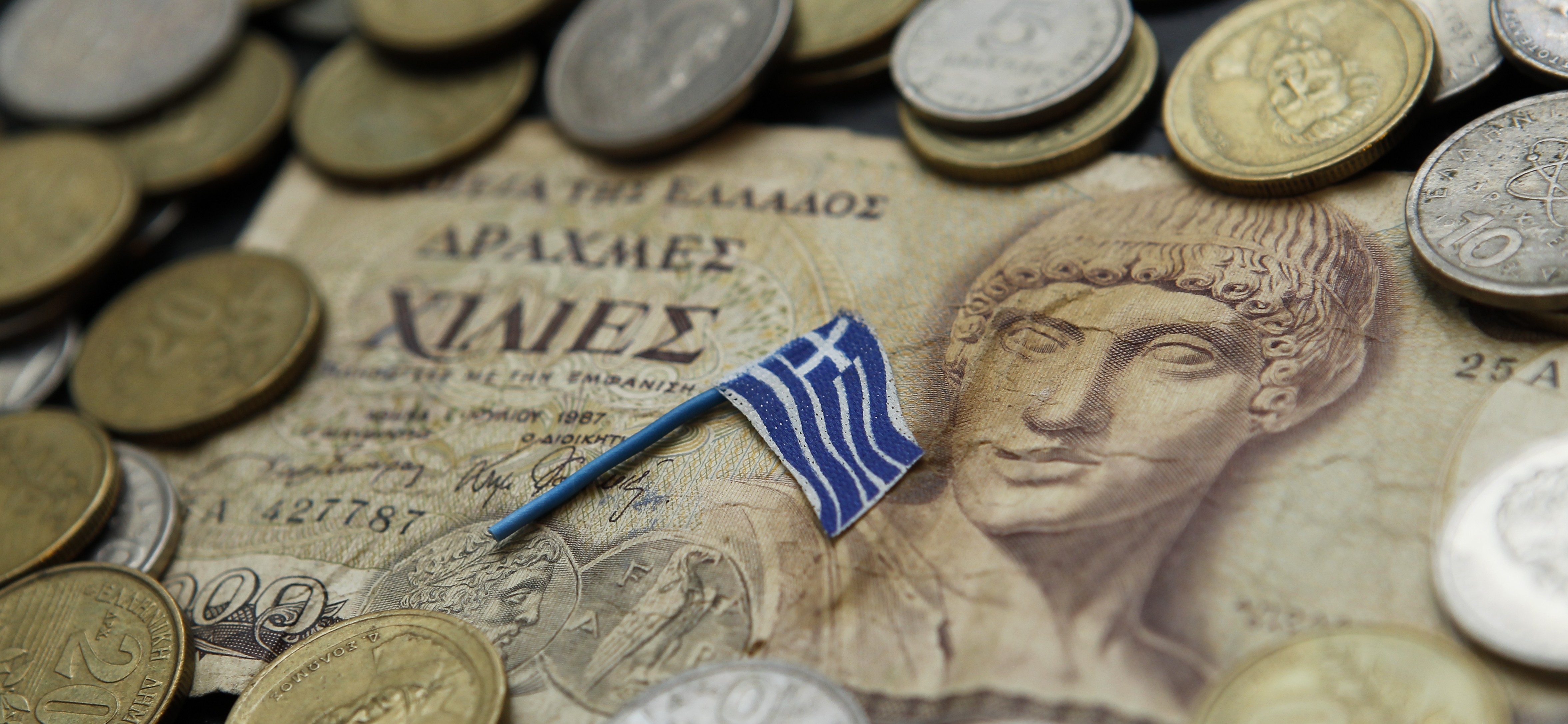The end of Europe? Why Greece's exit from the euro would have repercussions far beyond economics.
A Grexit would call Europe's great civilizational project into question


You think you've merely stopped a business deal. That is not the case!... You are an old man who thinks in terms of nations and peoples. There are no nations. There are no peoples... There is only one holistic system of systems... It is the international system of currency which determines the totality of life on this planet. That is the natural order of things today... And YOU have meddled with the primal forces of nature, and YOU WILL ATONE! — Network (1976)
Four decades after Ned Beatty spoke those lines from Paddy Chayefsky's Oscar-winning script, and 16 years after the largest economies in Europe chose to adopt a currency not under the control of any sovereign state, the limits of this natural order are being reached. It turns out not only that nations and peoples still exist, but that cold calculations about what constitutes good business can reinforce or recreate old geopolitical divisions.
Consider the fates of Ukraine and Greece in their recent distress. The U.S. and its European allies have responded to Russian incursions into Ukraine with an escalating series of sanctions, fearful of what Russia's actions, if left unpunished, would mean for the stability of the international system. But the alternative disposition for Ukraine — integration into European institutions — was never very appealing in western European capitals, particularly Berlin, which understood that Ukraine would be a substantial additional fiscal burden on an already strained continent.
The Week
Escape your echo chamber. Get the facts behind the news, plus analysis from multiple perspectives.

Sign up for The Week's Free Newsletters
From our morning news briefing to a weekly Good News Newsletter, get the best of The Week delivered directly to your inbox.
From our morning news briefing to a weekly Good News Newsletter, get the best of The Week delivered directly to your inbox.
Greece, meanwhile, is already a member of the European Union and its currency union, the eurozone. Since the financial crisis, and the revelation of widespread chicanery in Greece's budget, Greece has struggled under an austerity regime imposed by its creditors. Though it has now achieved a primary surplus (tax revenue greater than expenses excluding interest on debt), those creditors — Germany most prominent among them — have refused to make the kind of generous restructuring offer that would enable Greece to dig out from a deep depression, for fear of the signal this would send to other, larger members of the eurozone with their own fiscal difficulties.
Now, Greece has elected a government with a mandate to force the issue, rejecting austerity even at the price of default and possible exit from the eurozone. But while three years ago, that kind of blackmail might have raised real fears of contagion, today a "Grexit" seems far more plausible. Europe's financial leaders have prepared, financially, for that eventuality precisely so that they have the option of calling Greece's bluff. They may well prefer to demonstrate that the euro can survive such an event than to risk the consequences of giving in to Greek fiscal demands.
Economically, allowing Greece to leave the euro and default on its debt might be the best thing for all parties. After a period of disruption, Greece would be able to grow again. The eurozone, meanwhile, would have demonstrated that it can distinguish between risks worth taking (Ireland) and risks not worth taking (Greece), and that it is not as brittle as might have been thought. But even if it is economically sensible — indeed, arguably because it may be economically sensible — a Grexit would have deeper implications for the trajectory and meaning of the European project.
That project was originally intended to be something new, neither a traditional state nor a mere customs union, but a kind of supra-national governance that would supplant nationalism, and end the possibility of intra-European conflict. Entry into the EU would tutor Italians and Portuguese in German thrift, and would cement Western democratic norms in countries like Ukraine and Turkey. It was a mechanism for defining — and expanding — the meaning and boundaries of European civilization.
A free daily email with the biggest news stories of the day – and the best features from TheWeek.com
A Grexit would redefine both the meaning and those boundaries. Countries like Poland are going to be properly leery of adopting the euro once it is clear that handing over control of monetary policy does not come with any implicit fiscal guarantees. Greece's new government is already providing Moscow with diplomatic support as Europe debates the possibility of further sanctions in response to Russian intervention in Ukraine. They will presumably only adopt a more pro-Russian line in the wake of a Grexit.
If it happens, a Grexit will make it clear that there are not only rules for becoming "European" but also rules you have to abide by to remain a European in good standing — rules over which supplicant states have little influence. Rationally, every state — even those in the heart of Europe — will necessarily recall their primary, national allegiances, knowing that these are all they can count on when the chips are down.
The point is not that a Greek departure from the euro would be catastrophic, or that Brussels (or Berlin) ought to see itself as in some kind of competition with Moscow for the allegiance of peripheral European states. Russia's willingness to waste blood and money on such a competition probably does it more harm than benefit; that was certainly the lesson Gorbachev took from the Brezhnev years. The point is that a willingness to let Greece leave signals precisely that Brussels — and Berlin — do not see themselves as being in that kind of competition. That the European project is no longer about defining a civilization.
From that point on, it's just a business deal.
Noah Millman is a screenwriter and filmmaker, a political columnist and a critic. From 2012 through 2017 he was a senior editor and featured blogger at The American Conservative. His work has also appeared in The New York Times Book Review, Politico, USA Today, The New Republic, The Weekly Standard, Foreign Policy, Modern Age, First Things, and the Jewish Review of Books, among other publications. Noah lives in Brooklyn with his wife and son.
-
 Political cartoons for January 18
Political cartoons for January 18Cartoons Sunday’s political cartoons include cost of living, endless supply of greed, and more
-
 Exploring ancient forests on three continents
Exploring ancient forests on three continentsThe Week Recommends Reconnecting with historic nature across the world
-
 How oil tankers have been weaponised
How oil tankers have been weaponisedThe Explainer The seizure of a Russian tanker in the Atlantic last week has drawn attention to the country’s clandestine shipping network
